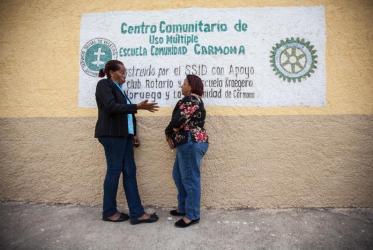Displaying 101 - 119 of 119
WCC mourns the death of Leopoldo Niilus
10 February 2015
Church leaders address statelessness in Dominican Republic
03 February 2015
WCC calls for protection of church leaders in Colombia
30 January 2015
Human rights defender Charles Harper honoured by Argentinian government
19 September 2014
WCC commission leadership selected
13 August 2014
Use of armed drones condemned by WCC
13 February 2014
Le COE condamne l'utilisation de drones armés
13 February 2014







